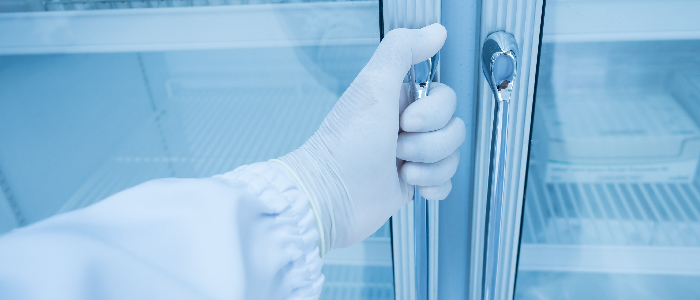
Introduction to Laboratory Refrigeration
Looking for a laboratory refrigerator? You’re in good company. Cold storage is essential for most labs. From storing scientific samples to lab chemicals, lab refrigerators have an important role to play. However, because of the vast options available to you, perhaps it’s been challenging to decide exactly what unit you need. We understand. These cooling machines have become more and more complex over the years, offering a myriad of features from specialized insulation and inner doors to snazzy controllers and temperature logging capabilities. The wrong kind of refrigerator can result in spoiled substances and huge financial losses. This article will eliminate the guesswork and highlight exactly what you need to consider when purchasing a lab refrigerator.
Unpacking Lab Refrigerator Features
First, take a good look at the features of each potential laboratory refrigerator. Ask yourself what would work best for your daily needs and contribute to a safe and productive work environment. Not sure where to start? Consider the features below:
Temperature Control
Investigate the temperature controller in each prospective unit. Premium laboratory refrigerators should come with a microprocessor temperature control system. Microprocessors are highly preferred over other options because of their uniform temperature regulation and precise digital control. Temperature control is probably the most important part of any lab refrigerator. It’s the whole reason you need a refrigerator in the first place. So if nothing else, make sure your refrigerator’s temperature control system is professional, precise, powerful, and accurate. Microprocessors deliver all these benefits with ease.
Size
What space do you have available? If your setting is cramped, consider an undercounter or countertop design. If you have a large facility and need vast amounts of storage, consider spacious, multi-door designs. It may be worth it to measure your space, especially if you have a limited area to work with.
Shelving and Storage
Open each prospective refrigerator and look at the shelving and storage space inside. Is there enough space to hold all your samples and substances? Maybe there’s too much? Considering your daily work needs and specific application will help you determine how much storage you need. Also consider the ways accessories and add-ons can help maximize storage space. For example, pull out basket drawers are extremely helpful for organization and provide easy access to all your samples.
Locks and Alarms
Check for a security system or keyed door locks on a prospective refrigerator. These measures prevent unauthorized personnel from accessing your refrigerator and its contents. This is especially important if the substances you store are either valuable or potentially dangerous. In addition to physical security, check to see if the refrigerator has integrated temperature alarms. These alarms alert you when temperatures rise or fall outside programed settings and help protect your substances from being spoiled. A great safeguard.
Air Circulation
Investigate the unit’s air circulation system. Forced draft air circulation delivers effective circulation of cool air, ensuring uniform cooling throughout the chamber. This helps prevent uneven temperature pockets that could damage stored contents. A forced draft air circulation system also prevents large temperature swings every time the door is opened. If you open your refrigerator door often, air circulation is definitely a feature you’ll want to investigate. It can greatly protect your substances and also save you money by avoiding drastic temperature swings and energy expenditure.
Application
Consider your application and what substances your refrigerator will store. Do you store lab cultures? Chemicals? Samples? Different materials have different required temperature ranges that must be maintained for proper storage. Your application will be especially important to consider if you store vaccines or delicate scientific samples. These substances can be extremely sensitive to temperature fluctuations and require specialized refrigeration for optimal safety. Look for units that are certified to the NSF/ANSI 456 Vaccine Standard. These units have the highest protective standards and the greatest temperature control for vaccine and pharmaceutical applications.
Price
When making any purchase, consider your budget. The pricing of a laboratory refrigerator is influenced by many factors including size, temperature control systems, certifications, and more. Look for a unit that contains your desired features but is not excessive in additions you don’t need. This should lead you to a refrigerator and a price point that you’re happy with. But don’t bank everything on price. You want a unit that will last long and perform well for many years—many of the cheapest options won’t deliver these results.
Safety and Professionalism
Safety in laboratory refrigeration is key. If your lab stores flammable or volatile substances, choose a cold storage unit made specifically for these substances. Once safety is established, consider your professional image. Dorm and household refrigerators are unreliable and unprofessional. In addition, there's a strong chance you won't be able to file a warranty claim for a household refrigerator or freezer since these units generally have an intended use restriction. Therefore, your money and materials are at high risk.
Another area at risk could be your insurance policy. Commercial insurance policies vary widely in coverage and exclusions, so it's essential to review the specific policy that your laboratory has in place. Choose a unit that safeguards your facility and supports your professional image. You won’t regret it.
Wrapping Up
By now you should have a solid foundation on what to look for when buying a lab refrigerator. Take these principles with you in your quest, and enjoy exploring the fascinating world of laboratory refrigeration.